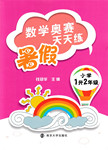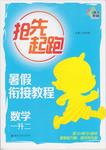题目内容
| |||||||||||||||||||||||||||||||||||||||||||||||||||||||||||
解析:
(1) |
细节理解题。根据文章的第四段前两句话得出答案。 |
(2) |
分析判断题。可以根据文章内容来逐一排除前三项。 |
(3) |
分析判断题。根据文章倒数第二段后两句话作出判断。 |
(4) |
判断作者写作目的。可以根据整篇文章的内容来判断作者写这篇文章的目的是为了告诉读者调查结果。 |

 数学奥赛暑假天天练南京大学出版社系列答案
数学奥赛暑假天天练南京大学出版社系列答案 南大教辅抢先起跑暑假衔接教程南京大学出版社系列答案
南大教辅抢先起跑暑假衔接教程南京大学出版社系列答案
| |||||||||||||||||||||||||||||||||||||||||||||||||||||||||||||||||||||||||
题目内容
| |||||||||||||||||||||||||||||||||||||||||||||||||||||||||||
(1) |
细节理解题。根据文章的第四段前两句话得出答案。 |
(2) |
分析判断题。可以根据文章内容来逐一排除前三项。 |
(3) |
分析判断题。根据文章倒数第二段后两句话作出判断。 |
(4) |
判断作者写作目的。可以根据整篇文章的内容来判断作者写这篇文章的目的是为了告诉读者调查结果。 |

 数学奥赛暑假天天练南京大学出版社系列答案
数学奥赛暑假天天练南京大学出版社系列答案 南大教辅抢先起跑暑假衔接教程南京大学出版社系列答案
南大教辅抢先起跑暑假衔接教程南京大学出版社系列答案
| |||||||||||||||||||||||||||||||||||||||||||||||||||||||||||||||||||||||||